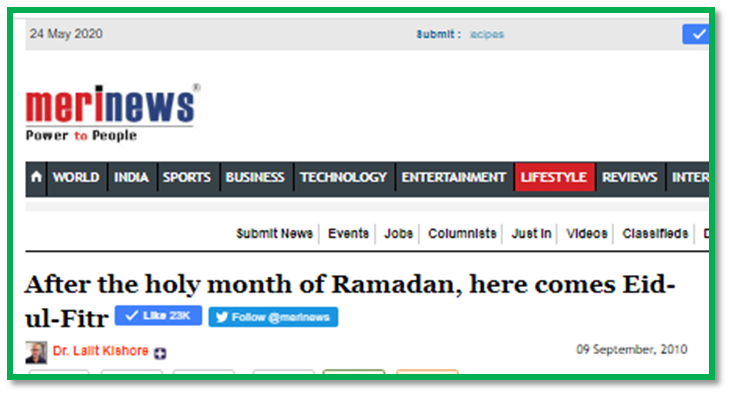After the holy month of Ramadan, here comes Eid-ul-Fitr
After the holy month of Ramadan, here comes Eid-ul-Fitr
Dr. Lalit Inshore, merinews.com[1]
Eid is a public holiday and is
celebrated all across India. Various non-muslims too visit their muslim friends
on this occasion to convey their good wishes.
Eid is also called 'Thanksgiving
Day' on which muslims assemble in a brotherly and joyful atmosphere to offer their
gratitude to Allah for helping them to fulfill their spiritual obligations.
This form of thanksgiving is not
confined to a set of mere verbal expressions, it goes far beyond to manifest
itself in the form of a wholesome social and spiritual devotion.
Eid ul-Fitr or Eid marks the end
of Ramadan - the holy month of fasting . The Arabic words here mean
"festivity after purification". Common greetings during Eid festival
are ‘Eid Mubarak ("Blessed Eid") or ‘Eid said ("Happy Eid").
Special dishes on the day include
"sivayyan" - a dish of fine, roasted sweet vermicelli noodles with
milk and dried fruit.
Although Eid is celebrated all
across India, the places which have set themselves apart include Jama Masjid in
New Delhi and Red Road in Kolkata.
My good wishes and greetings all
on this occasion: "Accept a bouquet of Eid wishes. May jubilations become
a part of your Eid and Your Life. Have a Happy Eid - Eid Mubarak!"
Here is related haiku
Over is fasting
Self-purified being manifests
With care-n-share value




Comments
Post a Comment